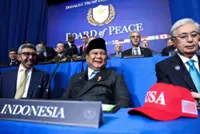SINGAPORE/KUALA LUMPUR, May 21 (Agencies): The on-going hype on “de-dollarisation” is unlikely to gain serious traction among the Association of South-East Asian Nations (Asean) over a number of practical and political reasons, with analysts urging caution and restraint against moves that will increase trade complications within the bloc and its external trade partners.
The success of the dollar as the global reserve currency and the stability it has brought about cannot be understated but recently it has come under attack as China, the leading strategic competitor of the US which seeks to de-throne the Dollar and replace it with either the Yuan or a yet to be announced newly created reserve currency, said Samirul Ariff Othman, a former senior research officer with the Malaysian Institute of Economic Research (MIER).





